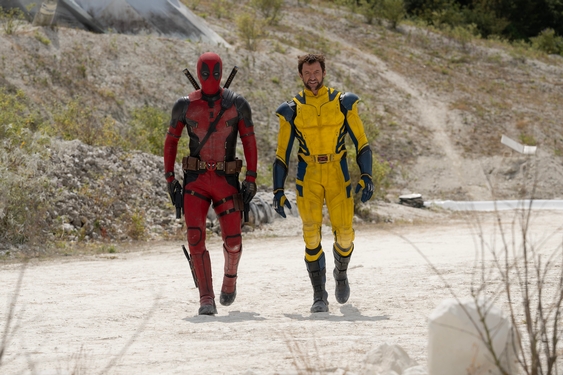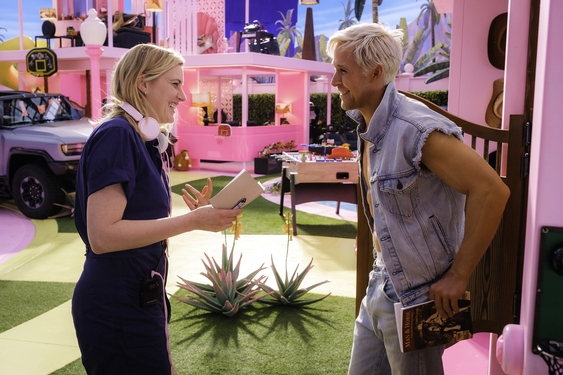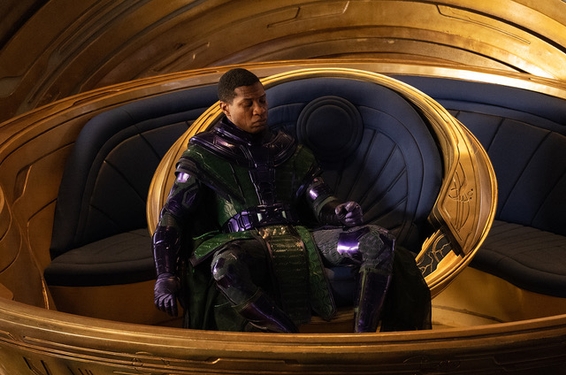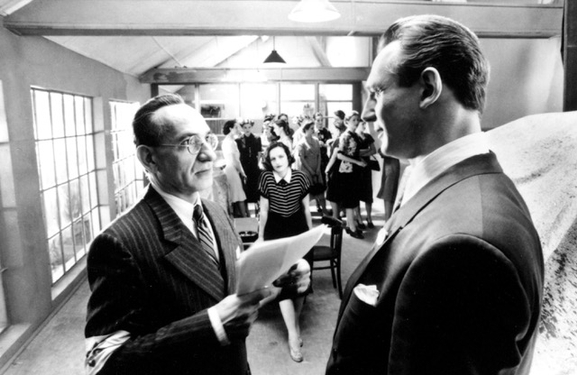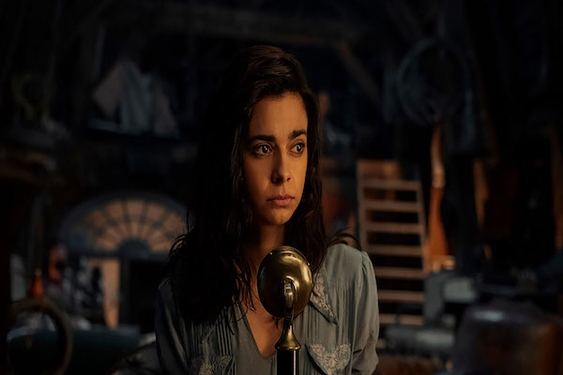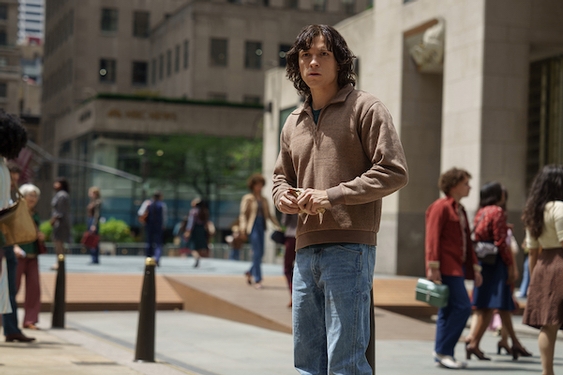
LOS ANGELES — Roland Emmerich’s face wore an easy expression of carefree calm as he strolled onto the patio of his Hollywood Hills home. The German director had just come from a morning screening of his new action movie White House Down, which blasts into theaters Friday. He’d been carefully listening to the final mix of the thundering soundtrack — a symphony of explosions, gunfire and shattering glass — and for the most part, he was happy, though a few remaining imperfections nagged at the corners of his smile.
“Everybody who makes movies, they say you can never, ever finish a movie, you can only abandon it, no matter how much time you have,” Emmerich said.
When Leonardo da Vinci stated, “Art is never finished, only abandoned,” he wasn’t necessarily referring to big-budget summer popcorn movies, and even the kindest critics might be hard-pressed to describe Emmerich’s films as works of art. Of the nine studio movies he previously directed, only two, Independence Day and The Patriot, have ratings above 50 percent fresh on the website Rotten Tomatoes.
But in a career spanning three decades, Emmerich, 57, has proved himself a reliable hitmaker for the studios — combined, his movies have earned more than $1 billion in North America alone.
White House Down is comfortably poised to add to Emmerich’s box office tally.
The movie, written by James Vanderbilt, sees Channing Tatum’s aspiring Secret Service agent John Cale tasked with guarding the life of the president (Jamie Foxx) after he’s targeted in a terrorist plot. Cale also must protect his precocious preteen daughter Emily (Joey King), who is touring 1600 Pennsylvania Ave. with her dad when chaos breaks out.
“It’s a straight action movie with slight political undertones done in the way I like to do movies so they don’t take themselves too seriously,” Emmerich said of his latest project.
“Sometimes I have a real problem with that. There was a time in the ‘70s and ‘80s mainly where people made fun movies which were not taking themselves too seriously. I don’t know what happened.”
In an industry with so much bluster and posturing, Emmerich seems to operate with a refreshing degree of candor and self-awareness. When he talks about the defining characteristics of his movies, he says that most of the time, there’s a “strong basic idea.”
He’s not attempting to make the sort of weighty, cerebral blockbusters pioneered by Christopher Nolan, or the coolly sleek variety so strongly associated with Michael Bay. He wants his movies to have humor and heart.
“There are those people who make mainstream commercial films in order to further their career so that they can one day get to make the movie they’ve always dreamed of making,” said Dean Devlin, Emmerich’s writing and producing partner on such projects as Stargate and Independence Day. “And then there’s those people who really, really love mainstream movies, and Roland’s one of those people. He approaches these films with the same amount of love and passion as Scorsese does when he does an art picture.”
Even as a film student in Munich in the late ‘70s, Emmerich realized that his sensibilities ran in a more commercial direction than those of his peers. They aspired to become the next Rainer Werner Fassbinder or Wim Wenders, while Emmerich was interested in following in the creative footsteps of George Lucas or Steven Spielberg.
By the time he arrived in Los Angeles at age 34, Emmerich had made four independent films in Germany, learning to work quickly and economically, a skill set he believes sets him apart.
“You have to see it, these movies are a job, and I’m constantly trying to be as professional as possible,” Emmerich said. “That’s why they like me at the studios. When I came to Los Angeles, I just saw how they’re making movies here, and it’s a waste of money; 20 percent to 30 percent is waste — egos, laziness, not being really truly professional, lack of craftsmanship. All these kinds of things, they add up.”
White House Down finds Emmerich returning to his comfort zone after 2011’s period costume drama Anonymous, which pondered the mystery of who really wrote Shakespeare’s plays. Sony chief Amy Pascal tipped Emmerich to the screenplay, and although he had some initial reservations about the premise — “I said, ‘Oh, my God, not the White House again’” — he found himself hooked by the premise.
The $150-million film shot on location in Montreal last year, with the production partially shooting six-day weeks to accommodate Tatum’s schedule — the busy actor completed White House Down and immediately began shooting another film, the drama Foxcatcher for director Bennett Miller.
As with Emmerich’s earlier hits 2012 and The Day After Tomorrow, White House Down follows the formula the filmmaker established with his 1996 alien invasion thriller Independence Day: There’s the charming but gently flawed protagonist at the center of a diverse ensemble cast, the spectacular disaster set pieces laced with a winking humor, the requisite upbeat ending.
Exactly how White House Down will fare in a crowded summer marketplace remains to be seen — early tracking suggests the film should open to about $25 million against the Sandra Bullock-Melissa McCarthy buddy cop comedy The Heat — but Emmerich already is looking to the future projects that will occupy his time.
Next up is Independence Day 2, which is set to arrive in theaters July 3, 2015, 19 years after the original opened to record-breaking box office and transformed Emmerich into a final-cut filmmaker.
Shooting is expected to begin early next year, and roughly half the cast is expected to return, though Will Smith will not be among them. (“He’s too big now,” Emmerich said. “It would be a ‘Will Smith’ movie.”)
“There’s so much misery out in our world, it’s such a harsh world,” Emmerich said. “You go to a movie, you want to feel good about it. Sometimes terrible things happen on screen, but at the end, you want to feel good about people.”
———
©2013 Los Angeles Times
Visit the Los Angeles Times at www.latimes.com
Distributed by MCT Information Services



